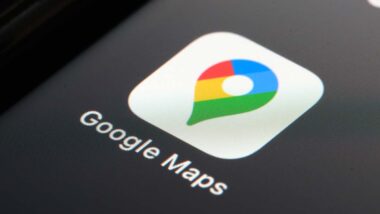Top Class Actions’s website and social media posts use affiliate links. If you make a purchase using such links, we may receive a commission, but it will not result in any additional charges to you. Please review our Affiliate Link Disclosure for more information.

In its motion, Google told the court that the plaintiffs’ allegations are insubstantial and are without merit.
Specifically, Google argues that the allegations fail to specify discriminatory policy or behavior related to their screening or hiring processes.
“At most, plaintiffs have presented allegations to suggest that certain candidates might have been discriminated against, which Google denies,” the company argued. “Because plaintiffs have no evidence whatsoever of a unifying scheme, conditional certification is inappropriate.”
Google further argued that since the plaintiffs’ allegations are “so idiosyncratic and distinct” and that they are “cobble together anecdotal allegations of discrimination,” the Court is obligated to separate the claims.
“Setting aside the merits, there is no glue binding even these claims together, much less those of any putative opt-ins,” Google argued. “For sound case management, to protect Google from a frivolous expedition conducted at its own expense, and to avoid stirring up litigation through unwarranted notice, the court must decide whether a manageable collective action exists here. Respectfully, one does not.”
The Google anti-discrimination lawsuit was initially brought by plaintiff Robert Heath in 2011, and was later joined by Cheryl Fillekes in 2016.
Heath and Fillekes claim they were turned down after applying for jobs at Google because of their age. Both were over 40.
Fillekes, a 47-year old programmer with a Ph.D. in geophysics from the University of Chicago and who also undertook postdoctoral work at Harvard, said she was invited for in-person interviews on four different occasions and was rejected each time.
The lawsuit alleges Google “engaged in a systematic pattern” of discrimination against people over the age of 40. It cited data from Payscale that put the median age of Google’s workforce at 29, with a margin of error of four percent.
It says the median age for computer programmers in the U.S. is 43.
In June, Fillekes pressed for conditional certification of collective action status.
This motion, similar to a class action, seeks to include “all individuals who interviewed in-person for any software engineer, site reliability engineer, or systems engineer position with Google in the United States during the time period from August 13, 2010 through the present; were age 40 or older at the time of the interview; and were refused employment by Google.”
The other lead plaintiff in this case, Robert Heath, a software engineer who was 60 years old at the time, was allegedly rejected after a technical telephone interview.
Heath is pursuing the age discrimination claim and will seek to join Fillekes’ conditional certification of collective action.
The proposed class action lawsuit claims that Google violated the Age Discrimination and Employment Act as well as California labor laws.
The proposed Class is potentially massive, as Google has received over one million applications for various software engineering and programming positions combined in the United States since the filing of the initial class action in August 2010.
But Google contends that based on the sheer volume of applications it received, it is impossible for them to systematically or reliably identify applicants who are 40 or more years of age.
The company states that at no time during the screening or interviewing process do they collect data on the age or birthdate of its applicants.
The technology titan also points out that certifying the Class would not be appropriate since doing so would then require all relevant interviewers and hiring committee members during the last five years to provide testimony.
As such, Google asserts this “would not promote the efficient resolution in one proceeding of common issues of law and fact arising from the same alleged discriminatory activity.”
Fillekes is represented by Daniel L. Low and Daniel Kotchen of Kotchen & Low LLP. Heath is represented by Dow W. Patten of Smith Patten.
The Google Anti-Discrimination Class Action Lawsuit is Robert Heath, et al. v. Google Inc., Case No. 5-15-cv-01824, in the U.S. District Court for the Northern District of California.
UPDATE: On Sept. 12, 2016, Google lost its motion to deny certification to a Class of job applicants who claim they were discriminated against in an age bias class action lawsuit.
UPDATE 2: On Oct. 4, 2016, a federal judge granted plaintiff Cheryl Fillekes’ motion for certification, discounting defendant Google’s argument that the plaintiff failed to allege company-wide discriminatory policies or behavior.
UPDATE 3: On July 19, 2019, Google has reached a settlement worth $11 million with close to 230 engineers who sued the company over claims that they were discriminated against because of their age.
ATTORNEY ADVERTISING
Top Class Actions is a Proud Member of the American Bar Association
LEGAL INFORMATION IS NOT LEGAL ADVICE
Top Class Actions Legal Statement
©2008 – 2024 Top Class Actions® LLC
Various Trademarks held by their respective owners
This website is not intended for viewing or usage by European Union citizens.















6 thoughts onGoogle Opposes Class Certification in Age Bias Lawsuit
UPDATE 2: On Oct. 4, 2016, a federal judge granted plaintiff Cheryl Fillekes’ motion for certification, discounting defendant Google’s argument that the plaintiff failed to allege company-wide discriminatory policies or behavior.
I still think its not right I use google a lot and I wonder to myself what if I get to that age and they close my account with them when I get to that age discrimination because I use it everyday even when I have problems with google chrome so I don’t know if its that way or not I would like more on this case
UPDATE: On Sept. 12, 2016, Google lost its motion to deny certification to a Class of job applicants who claim they were discriminated against in an age bias class action lawsuit.
Rubbish. Tech companies most certainly and routinely practice age discrimination. It is blatantly obvious.
I live on goggle for every question I have and I’m 67.
There are other ways Google can determine an applicant’s age in an interview with questions about college (and the year they graduated and or specific prior jobs/training and the year those were in, etc…) without asking for a birthdate.